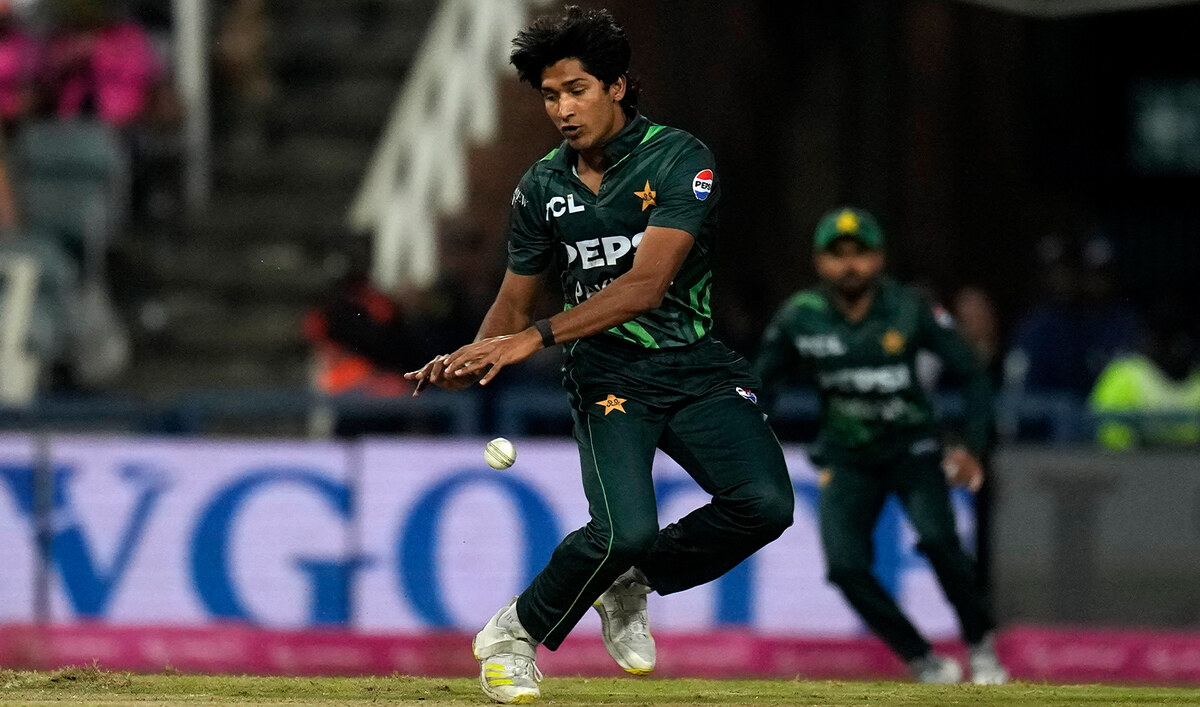ISLAMABAD: Pakistan's President Dr. Arif Alvi said on Saturday the nation wanted peace with arch-rival India, weeks after a tense military standoff between the two nations, and said dialogue was the only way to resolve all outstanding issues.
President Alvi was addressing a military parade to mark Republic Day, popularly known as Pakistan Day, which commemorates the anniversary of a 1940 resolution calling for a separate homeland for Muslims in India. In 2015, the tradition of holding the parade was resumed after seven years in a symbolic show of military strength by a nation which has been badly affected by militant attacks for over a decade.
In his address at the parade, Alvi said Pakistan did not believe in war and wanted to solve its problems through dialogue.
“India will have to accept Pakistan as a reality, and it must come to the conclusion that dialogue is the only way to resolve issues,” Alvi said. “Instead of war we should focus on education and health.”
Last month, India and Pakistan almost came to the brink of war over a suicide attack in the Indian-controlled part of Kashmir in which at least 40 paramilitary troopers were killed. As India launched airstrikes in Pakistan and Pakistan retaliated with strikes of its own, the possibility of all-out war seemed all too real.
President Alvi said Pakistan's sovereignty had been challenged many times in the past and "wars were imposed on us” but praised the nation for fighting off those assaults. He said "Pakistan respects all countries' sovereignty and wishes peace" but made it clear that the "desire for peace should not be misconstrued as a sign of weakness.”
On the occasion, Prime Minister Imran Khan stressed the "need to achieve the goal of a true Islamic welfare state as envisaged by Quaid-e-Azam Muhammad Ali Jinnah," the founder of Pakistan. He also expressed solidarity with the people of Indian-administered Kashmir "who have long been victims of Indian state terrorism and forced to lead a life of misery."
Nuclear-armed neighbors Pakistan and India have fought three wars since gaining independence from British rule in 1947, two of them over Kashmir, a Muslim-majority region that both claim in full but govern in part.
A day before the parade, Khan had taken to Twitter to welcome a message from Indian prime minister Narendra Modi on the occasion of Pakistan Day and said it was time to begin a dialogue to resolve all issues.
“I welcome PM Modi's message to our people,” Khan said in a Twitter post. “As we celebrate Pakistan Day I believe it is time to begin a comprehensive dialogue with India to address & resolve all issues, esp the central issue of Kashmir, & forge a new relationship based on peace & prosperity for all our people.”
In a separate post, Khan said he had received the following greeting from Modi on Pakistan Day: "I extend my greetings & best wishes to the people of Pakistan on the National Day of Pakistan. It is time that ppl of Sub-continent work together for a democratic, peaceful, progressive & prosperous region, in an atmosphere free of terror and violence.”
On Saturday, National Day celebrations kicked off with gun salutes and prayers, followed by the military parade that showcased the nation's nuclear capable arsenal and at which Malaysian Prime Minister Mahathir Mohamed was the guest of honour.
A 31-gun salute was held in Islamabad and a 21-gun salute in the provincial capitals. At the break of dawn, special prayers were offered at mosques around the country and the national flag was hoisted on all major government buildings. A change-of-guards ceremony was also held at the mausoleum of Dr Allama Iqbal in Lahore.
The military parade itself was held at Parade Ground near the Shakarparian hills in Islamabad. Malaysian Prime Minister Mohammad was the guest of honour while the Pakistani president, prime minister, ministers, members of parliament, the three armed services chiefs and diplomats also attended. The defence minister of Azerbaijan, the army chief of Bahrain and government officials from Oman were also in attendance.
Aircrafts from the Army Aviation and Pakistan Air Force demonstrated aerobatic feats for the audience and combat and attack helicopters and skydivers of airborne units from the three armed forces showcased their skills. Air Chief Marshal Mujahid Anwar Khan led a fly-past as a salute to the president, following a formation of four JF-17 Thunder fighter jets and similar formations of Mirage, F-7PG and other fighter jets of the Pakistan Air Force. Radar systems, unmanned aerial vehicles, cruise missiles and other modern weaponry equipped with latest military technology were also rolled out.
Contingents from Azerbaijan, Bahrain, China, Saudi Arabia, Sri Lanka and Turkey also participated in the parade. Cultural delegates and floats from Sindh, Punjab, Balochistan, Khyber Pakhtunkhwa, Gilgit-Baltistan and Azad Kashmir also featured in the ceremony to showcase the diversity of Pakistan’s provinces.
An investiture ceremony will also be held at the presidential palace in the evening where the president will confer civil awards on individuals who have excelled in a range of fields. Around 171 personalities, including foreigners, have been selected for the awards this year.




















